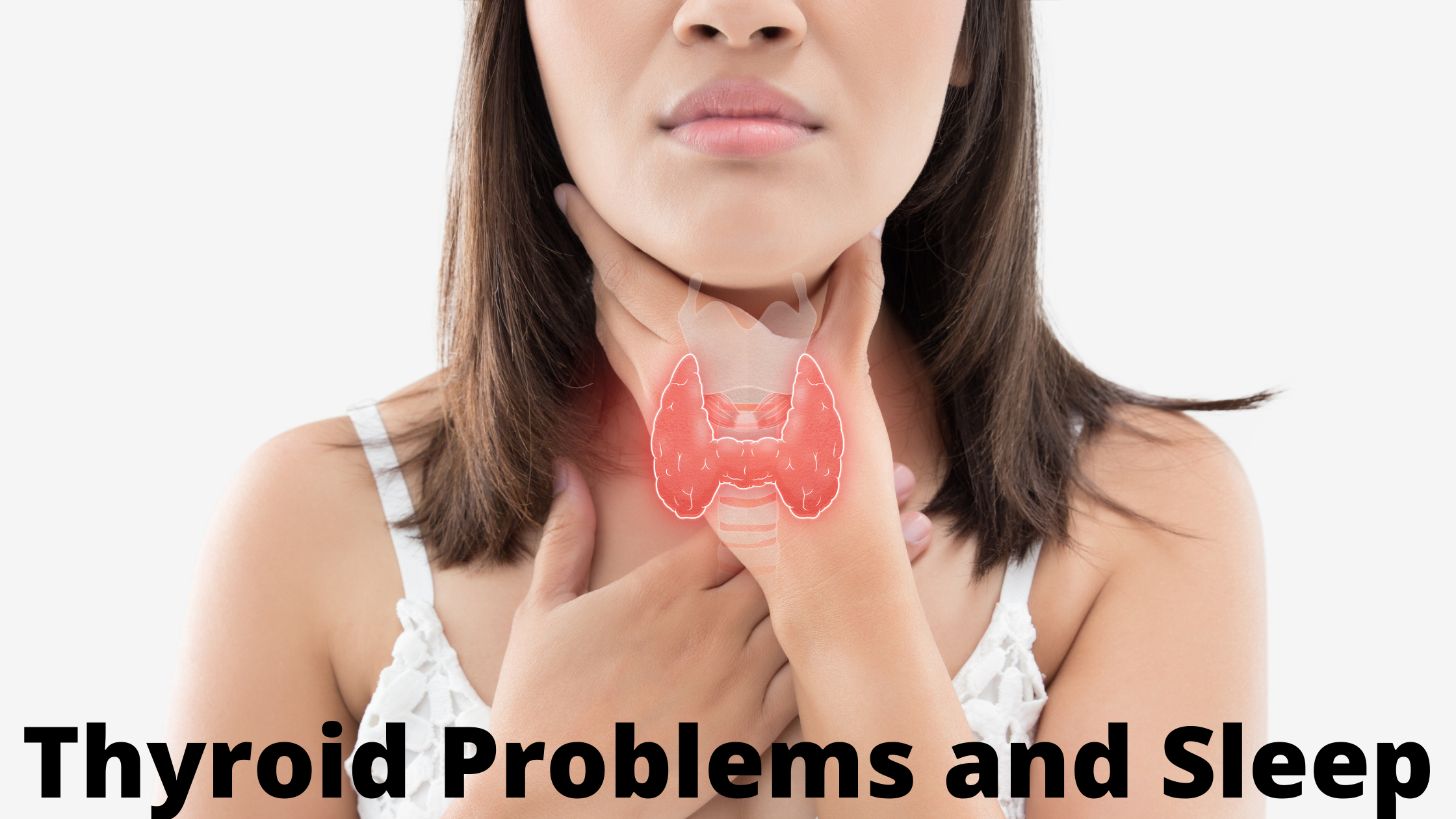
There is a gland in the neck called the thyroid. It produces thyroid hormone that is responsible for regulating many processes in your body. When the gland no longer produces these hormones, it can have detrimental effects on many processes, including sleep. Continue reading to find out if your thyroid may be the reason you're having trouble sleeping.
The thyroid
The thyroid gland is a small gland that is in the front of your neck. It is controlled by the hypothalamic-pituitary axis (HPA) that releases two hormones: Thyrotropin-releasing hormone (TRH) and thyroid-stimulating hormone (TSH). TRH is released by the hypothalamus and stimulates the pituitary gland to release TSH. TSH travels to the thalamus and initiates the production of thyroid hormone (TH). TH then carries out many functions all over the body.
When this process of events is disrupted, then that can lead to high levels (hyperthyroidism) or low levels (hypothyroidism) of TH.
Hyper and Hypothyroidism
Hyperthyroidism is too high levels of thyroid hormone. It stimulates the body, causing heart palpitations, heat intolerance, weight loss, anxiety, and increased urination.
Hypothyroidism is too low of levels of thyroid hormone, and causes the opposite effect. Those with hypothyroidism are cold-intolerant, have low energy, gain weight, and exhibit symptoms of depression.
They both can be either primary or secondary. Primary is an issue with the thyroid gland itself. There is something that is stimulating or destroying thyroid hormones and changing the level in the body. Graves' disease is an autoimmune disorder that stimulates thyroid receptors, making more thyroid hormone. Hashimoto's Thyroiditis destroys thyroid hormone, causing hypothyroidism. Tumors on the thyroid can also lead to hyper or hypothyroidism, so it's important to get annual checkups so your physician can identify any abnormalities.
Secondary is in the brain and is an issue with the pituitary or the hypothalamus. If either of those is out of sync, then the thyroid will make too much or too little thyroid hormone.
Thyroid and sleep
Hyperthyroidism and hypothyroidism both negatively impact sleep. Hyperthyroidism causes night sweats, jitteriness or nervousness, and nocturia (frequent urination throughout the night). It's very difficult to get adequate sleep when you are profusely sweating or getting up to go to the bathroom.
Hypothyroidism can cause trouble falling asleep and not being able to stay asleep long enough to feel fully rested. Hypothyroidism can affect your sleep by making you feel too cold or causing joint or muscle pain. Hypothyroidism can also cause hypersomnia, where it's very difficult to stay awake at night.
How to tell if your thyroid is the cause of your sleep problems
Thyroid conditions are linked to many symptoms beyond just sleep. If you're only having trouble sleeping, then that might be due to something else. However, if you're experiencing other issues, then it may be time to ask your doctor about your thyroid.
Symptoms of hypothyroidism include:
- weight gain
- puffy face
- constipation
- dry skin
- hoarseness
- heavy or irregular menstrual periods
- fatigue
- feeling cold
- joint pain
- excessive daytime sleepiness.
Symptoms of hyperthyroidism include:
- feeling nervous or cranky
- night sweats
- fast or irregular heartbeat
- bigger appetite
- unintended weight loss
- muscle weakness
- shaky hands and fingers
- brittle hair
- thin skin
- changes in bowel habits or menstrual periods
What to do
If you're experiencing sleep problems and some of these other symptoms, then it's time to get a blood test. Your doctor will measure the amount of hormone in your blood and decide if you need a boost in hormone or a suppressor.
If you are experiencing hypothyroidism, then standard treatment is hormone replacement therapy. You'll most likely be prescribed levothyroxine, which will help keep your thyroid levels normal.
If you have hyperthyroidism, then you'll be prescribed radioactive iodine, PTU, or methimazole. Beta blockers like metoprolol and propranolol can help with some of the cardiac symptoms.
You can also speak to one of our sleep health professionals to see how to get better sleep. Just click the orange button below to take a free online sleep test and begin working on your sleep immediately.
https://www.webmd.com/sleep-disorders/thyroid-and-insomnia#:~:text=If%20your%20thyroid%20makes%20too%20little%20hormone%2C%20it's%20a%20more,causing%20joint%20or%20muscle%20pain.

